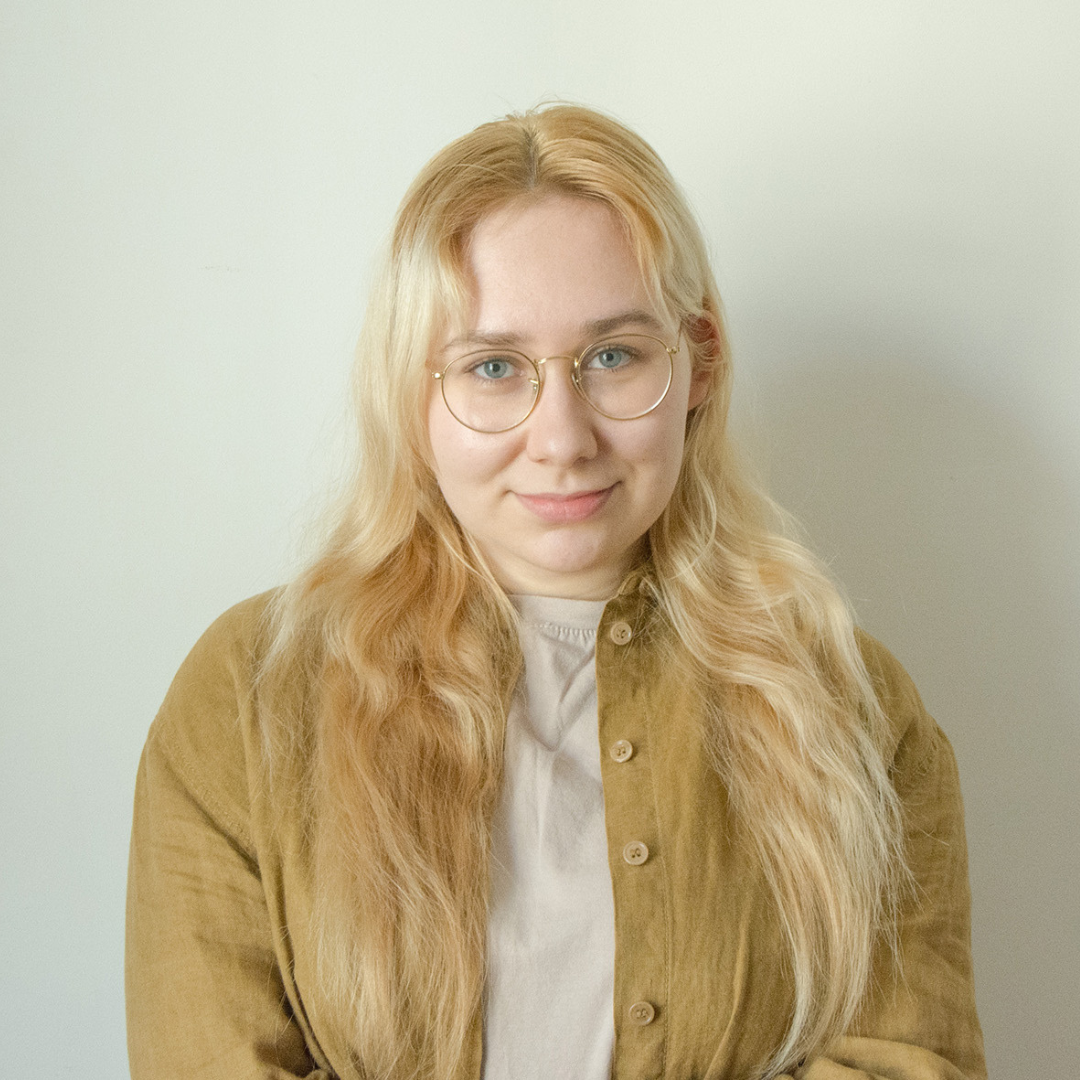Sea-friendly beach accessories
DESIGN: Maja Góralczyk
Poland
make me! 2024
The tourist season is connected with the negative impacts of human activity on coastal ecosystems. The total amount of microplastics in the Baltic Sea continues to increase and is likely to remain there forever. Even the activity of collecting seashells during this period is not without consequences. They are a fundamental building material for creating new shells, provide a substrate for marine plants, and are a source of calcium carbonate, essential for the marine ecosystem.
The biomaterial used for project is also linked to tourism. Mussels and oysters shells were sourced from restaurants in Gdansk, where they would have been discarded as waste. Eco-friendly beach accessories are an example of closed-loop design – abandoned on the beach, they do not pollute the environment, and the shells are returned to the sea.
The project was a collaboration with chemistry students, Katarzyna Łakocka and Natalia Szela, who investigated the use of chitosan, a binder associated with crustaceans.
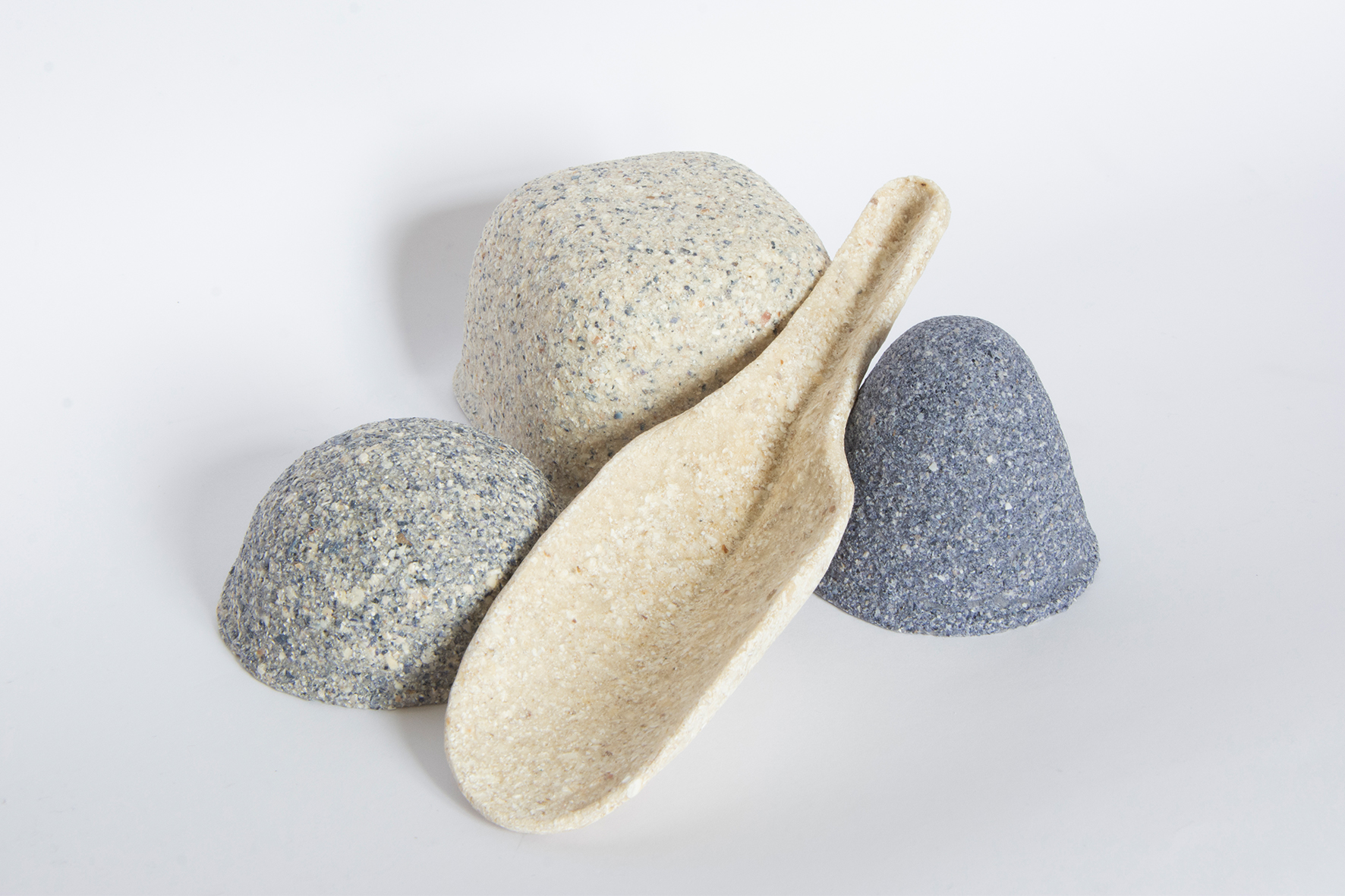
Sea-friendly beach accessories, design: Maja Góralczyk / from designer’s archive
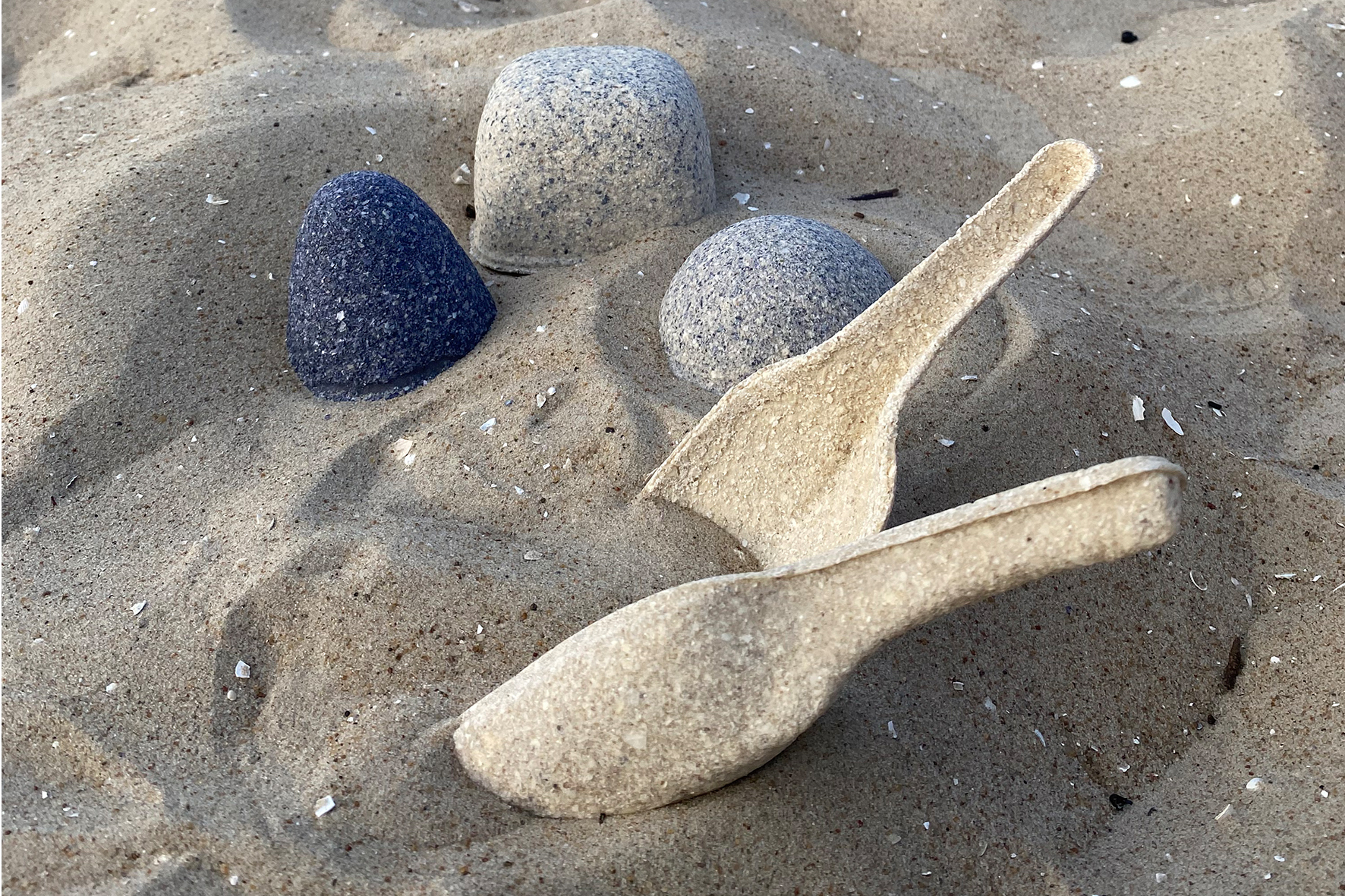
Sea-friendly beach accessories, design: Maja Góralczyk / from designer’s archive
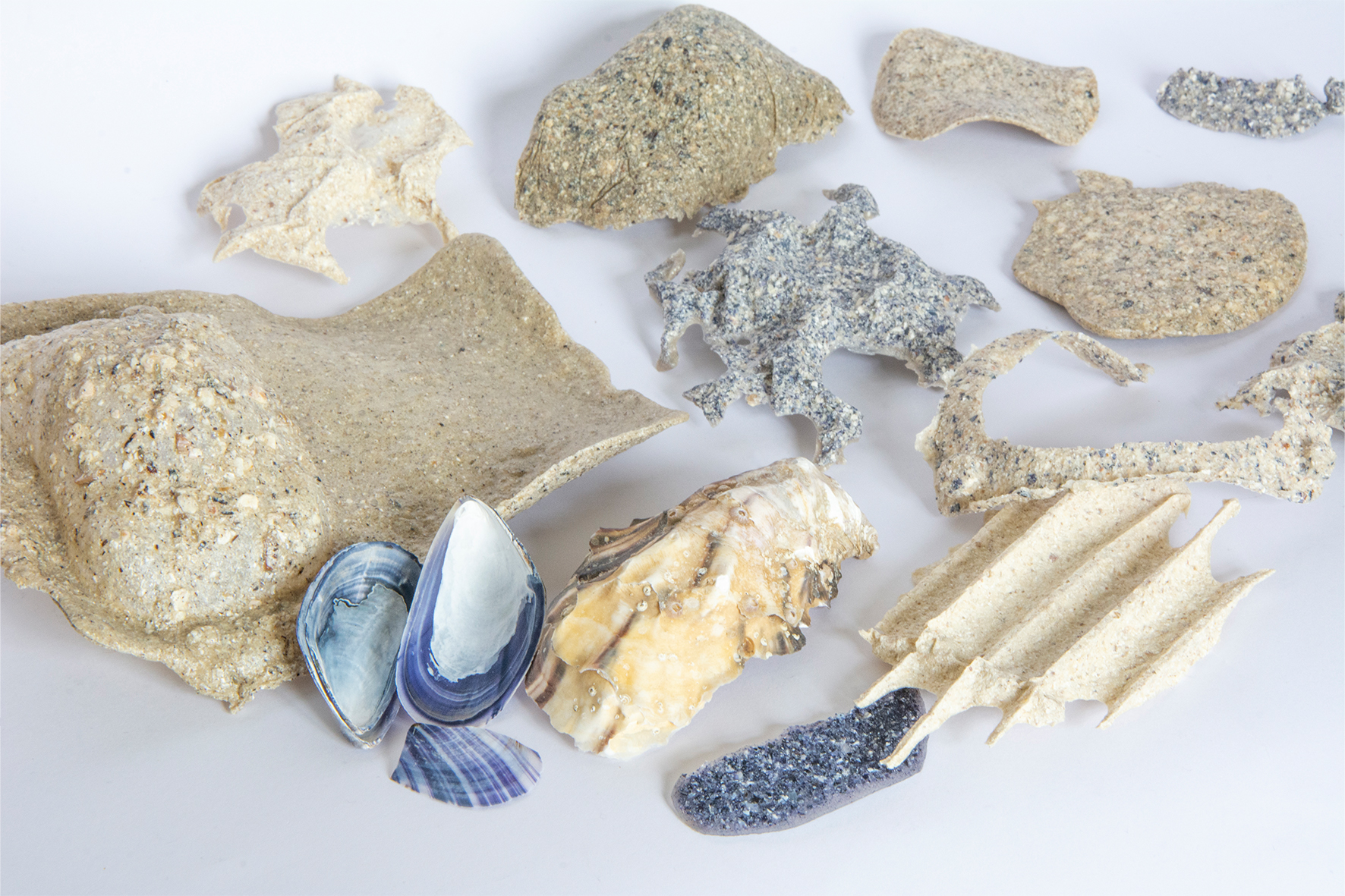
Sea-friendly beach accessories, design: Maja Góralczyk / from designer’s archive
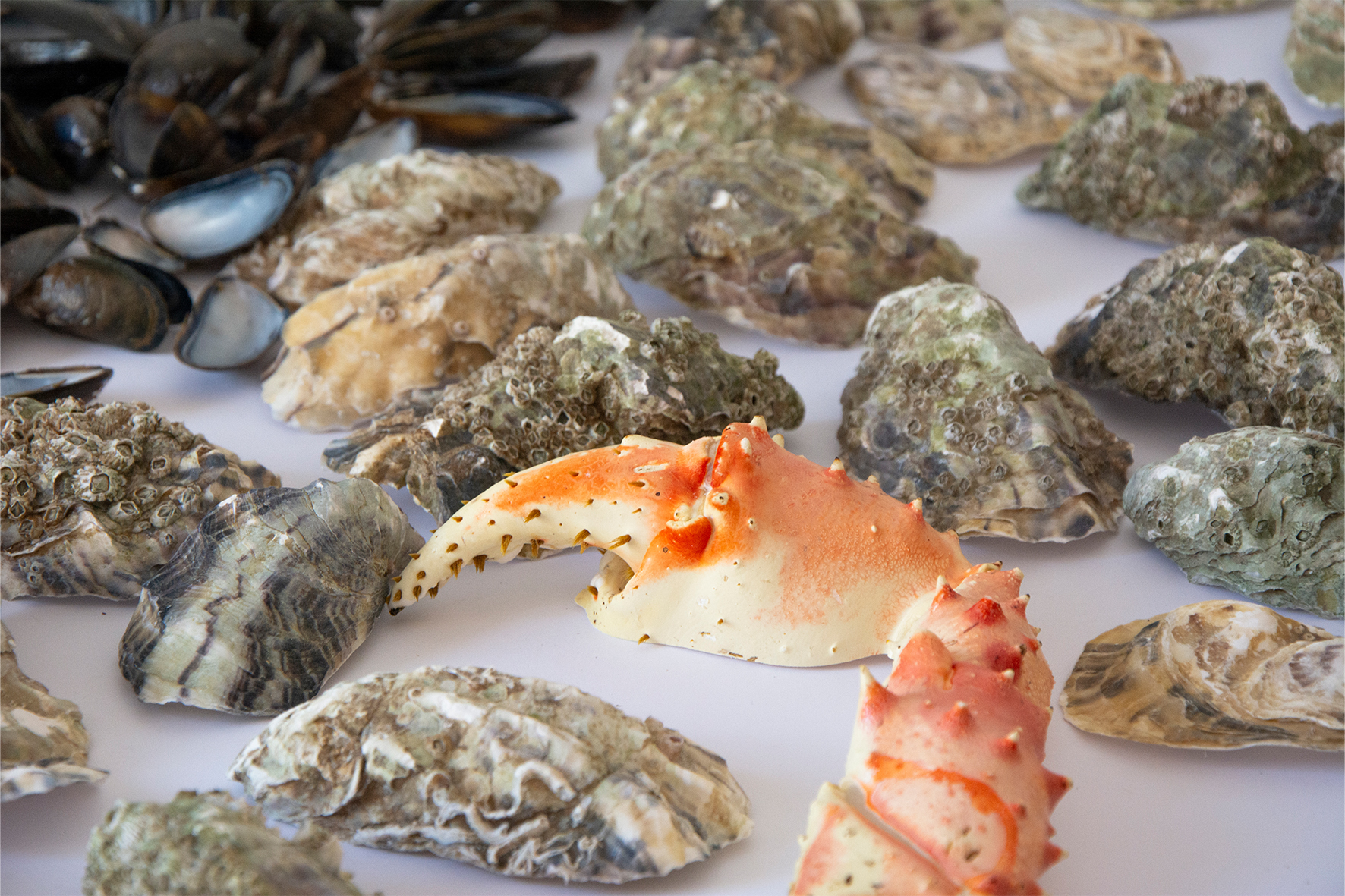
Sea-friendly beach accessories, design: Maja Góralczyk / from designer’s archive
Maja Góralczyk
A Design student at the Academy of Fine Arts in Gdańsk and a graduate in Architecture from the Gdańsk University of Technology. She believes that responsible design is important regardless of scale. She strives to incorporate ecological and ethical aspects into her projects, aiming to minimize negative environmental impact and improve the quality of life for users.
She has participated in exhibitions such as Art’em All 2, Gdynia Design Days 2023, WASTES at the Design Institute in Kielce, and is a finalist in the Young Design 2024 competition.
